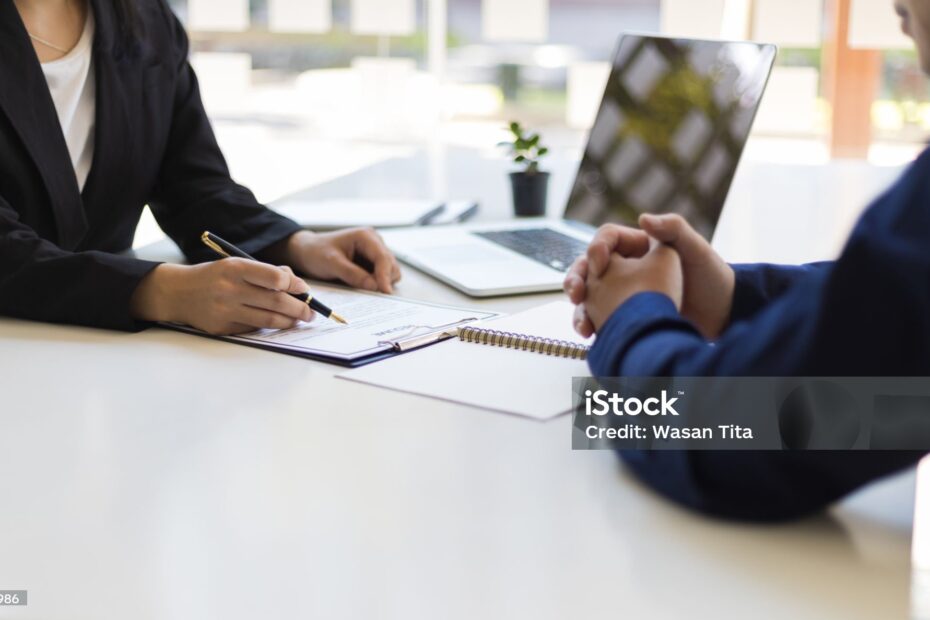Did you know that many employers form an opinion about a candidate within the first few minutes of an interview? That’s pretty wild, right? It shows just how important it is to make a great first impression. Job interviews can feel like a big deal, and it’s totally normal to feel a bit nervous. But don’t worry, with the right preparation and mindset, you can excel during your interview. In this article, we’ll look into some expert tips that will help you shine and show your best self when it matters most.
Understanding the Job and Company
Before you even step into the interview room, it’s super important to understand the job and the company you’re applying to. Think of it like preparing for a big game. You wouldn’t go in without knowing your opponent, right? Here’s how you can get ready:
- Research the Company: Take some time to learn about what the company does. Check out their website, read their mission statement, and see what they value. This will help you understand their culture and what they are looking for in a candidate.
- Know the Job Role: Look closely at the job description. What are the main responsibilities? What skills do they want? Make sure you know how your background matches those needs. This way, when they ask why you want the job, you can give a thoughtful answer.
- Align Your Skills: Think about your own skills and experiences. How do they fit with what the company is looking for? If you can show that you understand their needs and how you can help meet them, it will make a strong impression.
By doing this research, you’re not just preparing answers; you’re showing that you care about the opportunity and that you’re serious about joining their team.
Preparing for Common Interview Questions
Now that you’ve done your homework on the company and role, let’s talk about one of the most crucial parts of any interview: answering questions. You’ll want to be ready for common questions that come up. Here are some tips:
- Practice Answers: Think about questions like “Tell me about yourself” or “What are your strengths?” Write down your answers and practice saying them out loud. This will help you sound more confident when it’s time for the real deal.
- Use the STAR Method: When answering behavioral questions (like “Tell me about a time when…”), use the STAR method. This stands for Situation, Task, Action, Result. It helps you structure your answers clearly so that interviewers can follow along easily.
- Be Honest: Don’t try to be someone you’re not. Share real experiences that highlight your skills. If there was a challenge at work, talk about how you handled it. Authenticity goes a long way in interviews.
Remember, practice makes perfect! The more comfortable you are with your answers, the more relaxed you’ll feel during the interview.
Dressing for Success
You know what they say: dress for the job you want, not the job you have. What does that mean? It means making sure your outfit fits well with what is expected at the company. Here’s how to nail your look:
- Choose Appropriate Attire: If you’re unsure what to wear, it’s always better to be slightly overdressed than underdressed. A nice shirt and slacks or a simple dress can work wonders. Check out pictures of employees online if you’re not sure.
- Be Neat and Tidy: Make sure your clothes are clean and pressed. Wrinkles can make even the best outfit look sloppy. Also, pay attention to grooming—hair should be neat, and nails should be clean.
- Pay Attention to Details: Don’t forget about shoes and accessories! Clean shoes can make a big difference in how polished you look. A simple watch or piece of jewelry can add just enough flair without being distracting.
Dressing well not only helps create a good impression but also boosts your confidence as you walk into that interview room.
Body Language and Communication Skills
Did you know that body language plays a huge role in how people perceive us? It’s true! When you’re in an interview, how you carry yourself can say just as much as your words do. Here are some tips on body language:
- Maintain Eye Contact: Looking someone in the eye shows confidence and interest in what they’re saying. Just don’t stare them down; find a comfortable balance.
- Smile Genuinely: A warm smile can create a friendly atmosphere and help put both you and the interviewer at ease. It shows you’re approachable.
- Listen Actively: Show that you’re engaged by nodding or giving small verbal affirmations like “I see” or “That makes sense.” This encourages a two-way conversation instead of just answering questions.
Remember, communication is not just about words; it’s also about how we express ourselves through our body language.
Following Up After the Interview
So you’ve had your interview—now what? Following up is an important step many people forget about. Here’s how to keep that good vibe going:
- Send a Thank You Note: A simple thank-you email goes a long way after an interview. It shows appreciation for their time and reinforces your interest in the position.
- Reiterate Your Interest: In your note, remind them why you’re excited about this opportunity. Mention something specific from your conversation that stood out to you.
- Keep It Short and Sweet: There’s no need to write an essay—just a few sentences will do! People appreciate brevity after busy days filled with interviews.
Following up is not just polite; it keeps you fresh in their minds as they make decisions about candidates.
Conclusion
Preparing for a job interview doesn’t have to be scary or overwhelming if you’ve got a plan in place. By understanding the company, practicing common questions, dressing appropriately, using good body language, and following up afterward, you’ll be setting yourself up for success. Remember that each interview is also an opportunity to learn something new about yourself and improve for next time.
So take these tips to heart and get ready to shine in your next interview! Have any personal experiences or tips you’d like to share? Drop them in the comments below; I’d love to hear from you!

